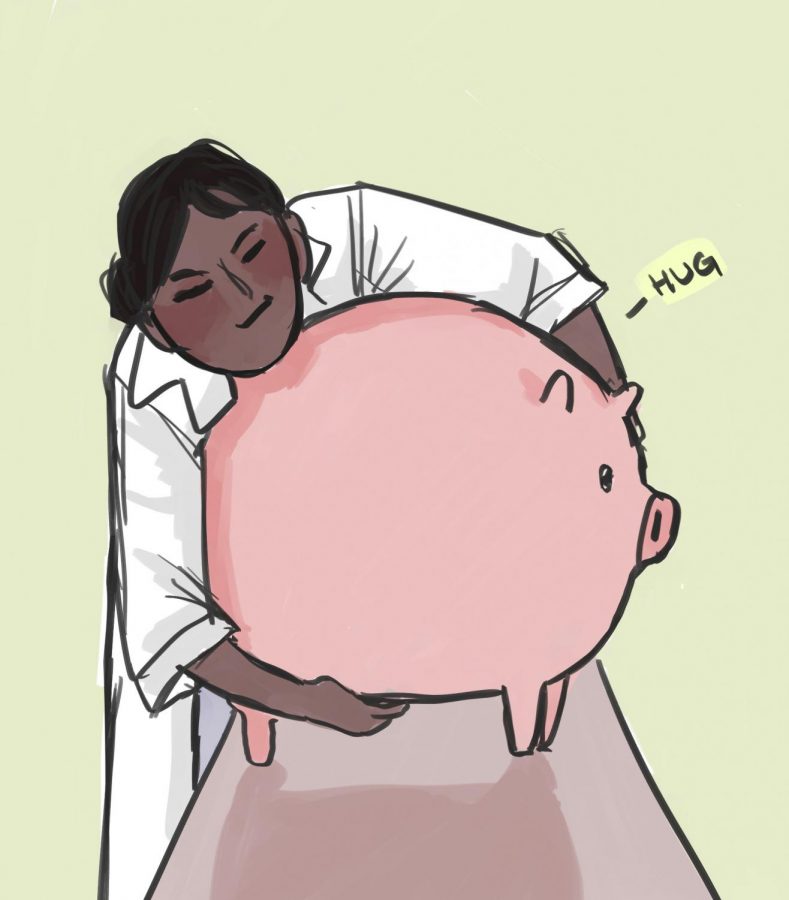PETA asks state auditor to investigate WSU research with animals during COVID-19
PETA’s request includes investigation into whether WSU spent taxpayer dollars on experiments involving animals
PETA requested the Washington State Auditor’s Office to investigate whether WSU spent taxpayer dollars on experiments involving animals labeled as non-essential.
September 23, 2020
The animal rights organization People for the Ethical Treatment of Animals requested a state audit regarding WSU research involving animals labeled as “unnecessary.”
PETA requested the Washington State Auditor’s Office to investigate whether WSU spent taxpayer dollars on experiments involving animals labeled as non-essential, said Shalin Gala, PETA vice president of international laboratory methods. As part of WSU’s response to COVID-19, the university created a checklist of modifications for research laboratory practices.
“We’re questioning why any of these animals are being bought, bred, trapped or experimented on in the first place since they appear to have been easily disposed of by WSU,” he said.
WSU’s response encouraged researchers to make a depopulation plan, prioritize research addressing major needs and postpone new studies, according to the audit request.
The university told WSU researchers to track and maintain a census of needed animals and identify “essential/irreplaceable” populations, according to the checklist. This included canceling ongoing orders for animals and reducing non-essential animal breeding, meaning no more animals were being brought into WSU either by sale or birth.
The researchers were also told to ensure the care of their animals by cross-training animal caretakers, acquiring and storing essential supplies like food and drafting a relocation plan, according to the checklist. The Office of the Campus Veterinarian will serve as a backup housing facility.
PETA’s allegations against WSU are based on the university’s first responses to the pandemic in March, said Nina Woodford, director of Office of the Campus Veterinarian. Those responses were created for the worst-case scenario.
The animal rights organization wants current and future state-funded research involving animals to be terminated if the state auditor finds WSU is wasting state funds, according to the audit request. PETA also wants the breeding and acquisition of animals for research to be prohibited.
PETA recommends WSU researchers use other methods that do not involve animals, like computer modeling, in vitro testing and the use of human cell cultures, Gala said.
Woodford said research involving animals is an important tool for solving issues for humans, animals and the environment.
“There’s a lot of information to be gained, and I think that would be a loss to science,” she said.
WSU has euthanized some animals because they passed the age necessary for research experiments, she said.
The audit request is a follow up to the letter PETA sent to WSU President Kirk Schulz in April, Gala said. PETA has not spoken with any university representatives about the issues in the letter.
PETA has reached out to 80 other universities and submitted audit requests in their corresponding states about issues with their animal-involved research.











Heather Moore • Sep 23, 2020 at 10:51 am
Animal experiments are cruel and pointless. There are humane and effective non-animal research methods. We should spend our time and money on those.
Shellatthebeach • Sep 23, 2020 at 8:33 am
People who experiment on animals need to have their heads examined. Why torment and kill thinking, feeling beings when humane methods are readily available?
Kim Marie • Sep 23, 2020 at 8:19 am
Why would any school dwell in the Dark Ages and test on animals? We have plenty of advanced, non-animal research methods available for experiments instead of hurting and killing animals.
LucyP • Sep 23, 2020 at 8:09 am
Animals are living, thinking, feeling beings—not lab equipment to use abuse and dispose of at our convenience. So many animals suffer and die for nothing more than curiosity-based experiments or “studies” done in order to keep publishing—and keep the gravy train flowing. It’s time to stop this madness and embrace human-relevant research.